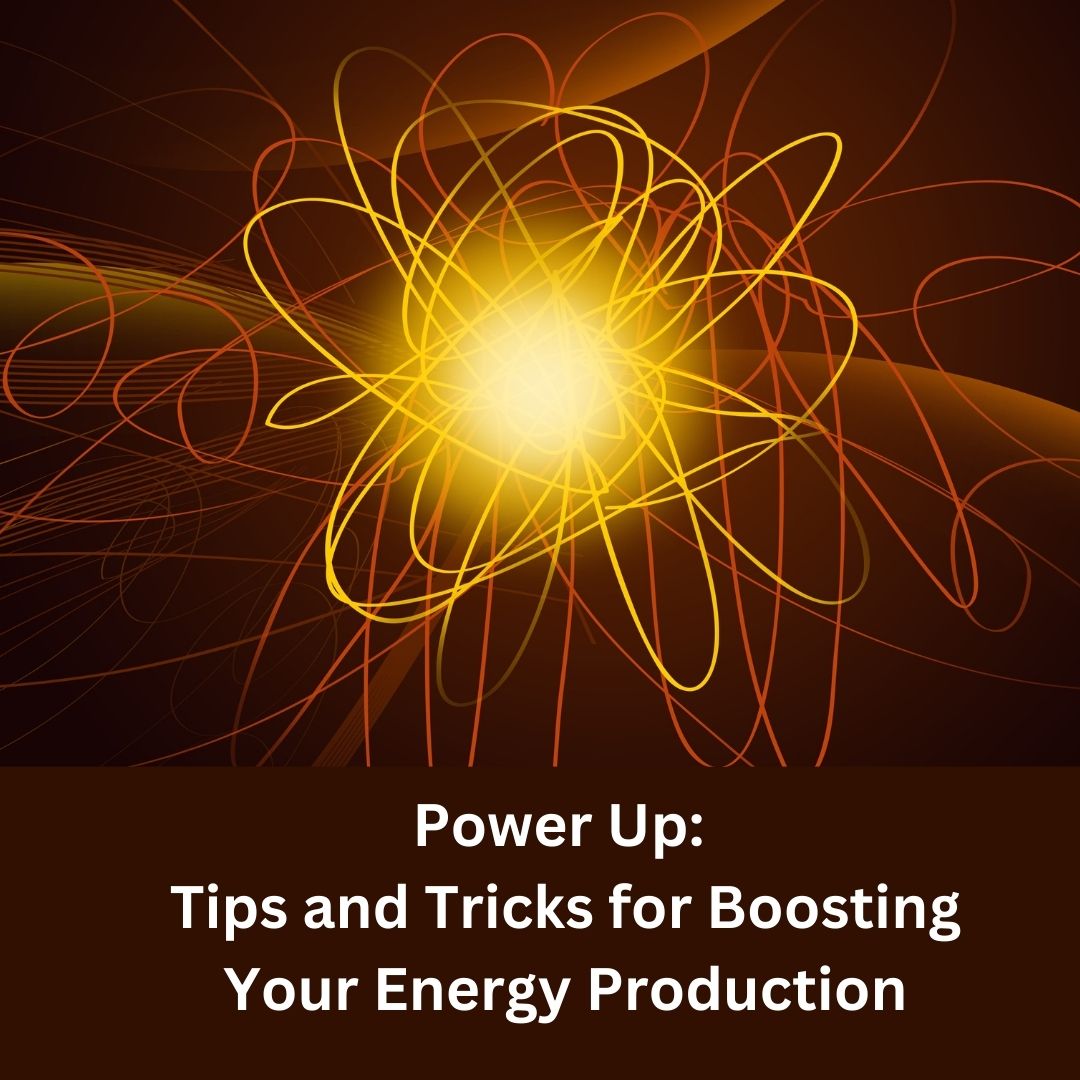The world belongs to the energetic – Ralph Waldo Emerson
Many people suffer from dips in energy. Are you one of them? If the answer is yes, imagine how different your life would be if your energy levels were high and consistent.
Why is it vital to have good energy levels?
In my last blog, I discussed the benefits of good energy levels. A quick recap: your energy levels impact your: Performance and productivity, your mental and emotional wellbeing, your physical health and feelings of vitality, your relationships, and your overall quality of life.
How does your body create energy?
The human body is an incredible energy-creating machine. In your cells, mitochondria (energy-creating factories) produce energy through “cellular respiration”. During this process, glucose is converted into usable energy in the form of ATP, which the cell can then use for various functions, including growth, reproduction, and repair.
How do I optimize my energy?
There are 4 stages of creating and using energy to consider. How to:
- Increase your energy production.
- Reduce your energy losses.
- Focus your energy on the work you want to do.
- Become super efficient in the work, aka peak performance.
“Energy and enthusiasm are contagious, and they will spread from person to person like wildfire.” – John Paul DeJoria
How do you improve your energy production?
Here are a few ways to help human cells create more energy:
- Exercise: Regular physical activity helps increase the number of mitochondria in your cells, leading to more energy production. If you are tired and low in energy, you may be sick or may have overexerted. But, for many of us, it means we need to move more. Feeling tired during the day? Run up and down the stairs a few times, do some jumping jacks, perform sun salutations or dance to your favorite song.
- Healthy Diet: Consuming a balanced diet rich in vitamins, minerals, and antioxidants can provide the nutrients necessary for the cells to produce energy more efficiently. Junk food or highly processed food can give a quick burst of energy but often leads to an energy crash. A diet high in processed foods can lead to chronic fatigue and disrupt overall energy levels in the long term. Protein-rich meals require a lot of energy for digestion.
- Adequate Sleep: Sleep quality is vital for cellular metabolism and energy production. During sleep, the cells have time to repair and regenerate, which can improve overall energy levels.
- Reduce Stress: Chronic stress can lead to a decrease in energy levels and can also negatively impact cellular metabolism. Incorporating stress-reducing activities such as meditation, yoga, or deep breathing can help improve energy levels.
- Hydration: Hydration is essential for overall cellular function, including energy production. Adequate fluid intake can help the cells produce energy more efficiently.
- Avoid Unhealthy Habits: Substance abuse, smoking, and excessive alcohol consumption can negatively affect cellular metabolism and energy production.
It’s important to remember that your body is unique, and what works for one person may not work for you. Additionally, talk to a doctor or healthcare provider before changing your diet or lifestyle if you have underlying medical conditions.
Next week, we’ll dive into reducing energy losses.
Resources
As you may know I am super nerdy and love to read. I only recommend resources that I have personally used and have found to be of the highest standard. Full disclosure: I am an amazon affiliate and earn a tiny commission on purchases.
Books
-
Metahuman: Unleashing Your Infinite Potential Paperback: Deepak Chopra M.D. (Author)
-
Becoming Supernatural: How Common People Are Doing the Uncommon: Joe Dispenza
-
High Performance Habits: How Extraordinary People Become That Way: Brendon Burchard
Videos
My video on letting go of negative energy
